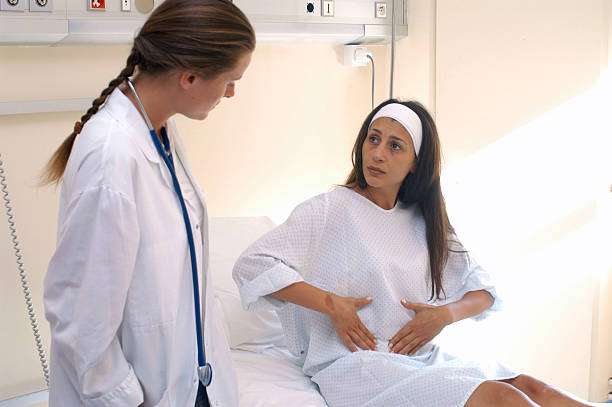This is an infection or inflammation of the appendix usually due to an obstruction in the appendix. The appendix is an organ that is part of the gastrointestinal tract and is present in the lower right side of the abdomen attached to the large intestine. While the appendix is believed to contain some tissue that helps the immune system fight infections in the body, it has no vital function and it is possible to live a normal and healthy life without it.
If the appendix becomes inflamed or infected, it requires immediate treatment because if left untreated, the appendix can rupture and this can lead to the release of bacteria and other substances into the abdominal cavity and thus, becomes life threatening.
CAUSES OF APPENDICITIS
The main cause of appendicitis is yet to be known but it is believed that appendicitis develops when part of the appendix becomes blocked or inflamed. The following are various factors that can increase the risk of appendicitis:
SYMPTOMS OF APPENDICITIS
7. Inability to pass gas
TREATMENT OF APPENDICITIS
When you meet your doctor, he or she will perform a physical exam on you and ask different questions about your symptoms. You will be asked to undergo some tests like urine tests, blood tests and an abdominal ultrasound. If you’re diagnosed with appendicitis, you will have to undergo a surgical procedure called an APPENDECTOMY, the removal of the appendix.
You will be given some medications like pain relievers, antibiotics before and after the surgery.
After the surgery, there are different home remedies that can help to hasten and aid your recovery. They are:
5. Ensure that you keep your surgical incision sites clean and dry everyday
PREVENTION OF APPENDICITIS
Appendicitis can’t be totally prevented but it is possible to lower the risk of developing it by eating food rich in fibre.
Foods that are high in fibre include:
Note: Appendicitis can affect anyone but it happens mostly in people that are between the ages of 15 and 30 years. It also occurs more in males than in female.

Aanuoluwapo is a nursing student of Bowen university. She desires to be a caregiver for people and helps to manage physical needs, prevent illness, and treat health conditions.














